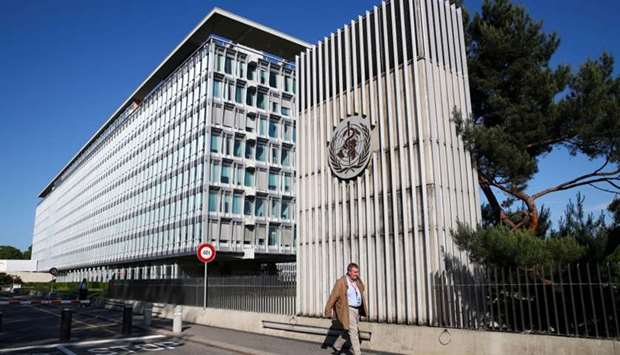* Australia's COVID-19 death toll reaches 100, cases top 7,000
* States and territories slowly reopening public life
* RBA warns of "unprecedented" economic contraction
* Cruise ships and care homes responsible for many cases, deaths
Australia and China traded barbs on Tuesday in an increasingly acrimonious diplomatic spat over Australia's support for a global inquiry into the origins of the coronavirus pandemic, as Australia recorded its 100th COVID-19 fatality.
Australia's relative success in constraining the spread of the virus has been overshadowed by the rift with its largest trading partner, which was exacerbated by a World Health Assembly (WHA) resolution in favour of the inquiry.
In an unusually blunt statement on the same day that China imposed hefty tariffs on Australian barley exports, China's embassy in Canberra said it was ‘nothing but a joke’ for Australia to claim the resolution was vindication of its push for a global review.
‘The draft resolution on COVID-19 to be adopted by the World Health Assembly is totally different from Australia's proposal of an independent international review,’ a Chinese embassy spokesman said in an emailed statement.
Asked about the comments, Trade Minister Simon Birmingham told Sky News that ‘Australia is not going to engage in cheap politicking over an issue as important as COVID-19’.
‘I would have thought the appropriate response from China's ambassador in Australia would have been to welcome these outcomes and welcome the opportunity for all of us to work together on this important issue.’
Chinese President Xi Jinping on Monday told the assembly, the decision-making body of the World Health Organisation, that China would support a comprehensive review after the pandemic is brought under control.
Australian Prime Minister Scott Morrison's spearheading of the call for an inquiry, alongside the European Union, has been a lightning rod for a more assertive approach by Chinese embassies to criticism of its handling of the coronavirus outbreak. That policy has been dubbed ‘Wolf Warrior’ diplomacy in both Western and Chinese media.
The Chinese ambassador had earlier warned of a consumer boycott of Australian goods, which prompted Australian accusations of ‘economic coercion’. The subsequent barley tariffs and the suspension of the export licences of several of Australia's largest beef processors were viewed by many as retaliatory.
The row potentially undermines Australia's shift to allow significantly more public activity this week under the first phase of a three-step federal government plan to reopen business, schools, restaurants, and other public life in a bid to give the economy a boost.
The Reserve Bank of Australia (RBA) warned on Tuesday that the country was facing an ‘unprecedented’ economic contraction, though massive fiscal and monetary policy stimulus would help cushion the blow.
Qantas Airways Ltd said it was ready to restart 40-50% of its domestic capacity in July if states relax border controls, and expects to offer low fares to stimulate travel demand.
100 DEATHS
While a grim milestone, Australia's death toll of 100 from 7,060 confirmed cases remains well below the fatalities reported in China, North America, Europe and other parts of Asia despite Australia's earlier exposure to the pandemic.
‘The outcome in Australia is better because we were lucky in that we saw what was happening in China and so we were able to prepare and put the testing in place,’ Peter Collignon, an infectious diseases physician and microbiologist at Canberra Hospital, told Reuters.
Australia's rate of new daily infections peaked on March 23 with 430 cases, according to a Reuters tally based on official data. New cases have averaged about 15 a day over the past week.
The 100th fatality was a 93-year-old woman from a care home outside Sydney, a facility responsible for 19 deaths. Australia's first reported case on March 1 was a 78-year-old man who had been a passenger on the Diamond Princess cruise ship.
The two cases illustrate Australia's biggest weaknesses in its fight against the disease, with the majority of the country's deaths people aged 70 or over and many linked to either cruise ships or aged care homes.

